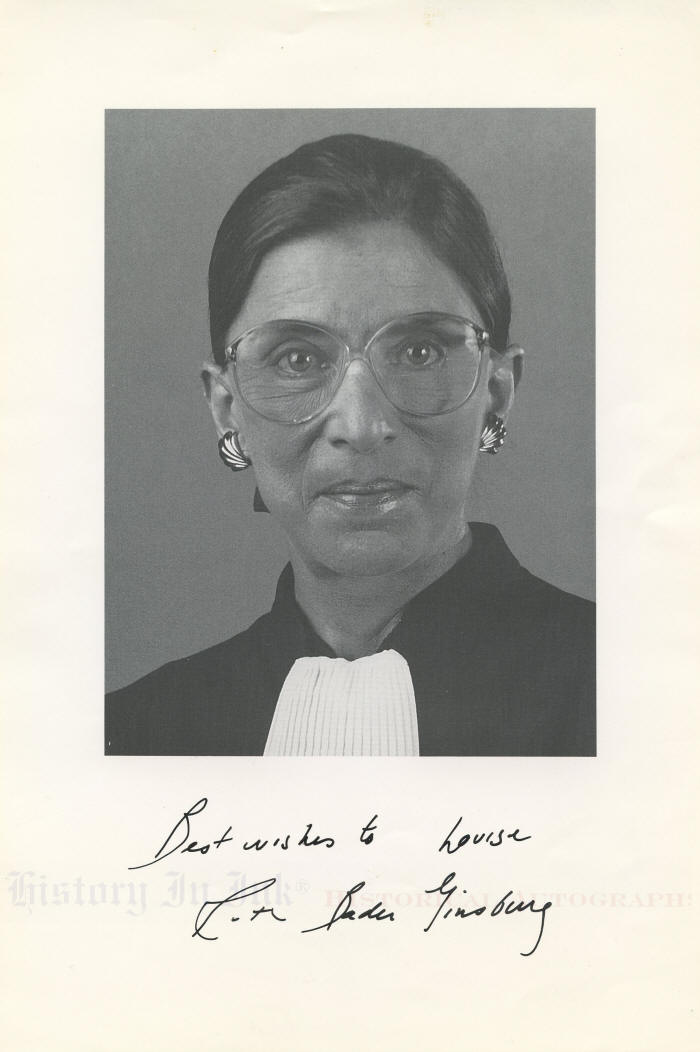
2125803
Ruth Bader Ginsburg
Signed photograph of Justice Ginsburg from early in her tenure on the Supreme Court
Joan Ruth Bader Ginsburg, 1933–2020. Associate Justice, Supreme Court of the United States, 1993–2020. Black-and-white lithograph photograph inscribed and signed, Best wishes to Louise / Ruth Bader Ginsburg, as Associate Justice.
This is a nice 6” x 9” book weight photograph of Justice Ginsburg of the type that the Supreme Court provides for the justices’ use for autographs. The image was taken early in Ginsburg’s tenure on the Court. She has boldly inscribed and signed in black.
In 1993, President Bill Clinton appointed Ginsburg, then a federal Court of Appeals judge, to the Supreme Court to succeed retiring Justice Byron R. White. The second woman and the first Jewish woman appointed to the Supreme Court, she was a staunch advocate for gender equality and women’s rights. Clinton aide George Stephanopoulos called her “a pioneer in the legal fight for women’s rights—a female Thurgood Marshall.” George Stephanopoulos, All Too Human: A Political Education 169 (1999).
Ginsburg had experienced discrimination first hand. As a professor of law at Rutgers Law School, her first academic teaching position, she earned less than her male colleagues because, she was told, her husband had a good job. She later co-founded the Women’s Law Reporter, the first American law journal to focus exclusively on women’s rights; became the first tenured woman on the faculty of Columbia Law School; co-authored the first law school casebook on sex discrimination; and co-founded the ACLU’s Women’s Rights Project.
As a Justice, Ginsburg wrote the Supreme Court’s majority opinion in United States v. Virginia, 518 U.S. 515 (1996), in which the Court ruled unconstitutional Virginia Military Institute’s longstanding male-only admissions policy.
Before her appointment to the Supreme Court, Ginsburg had served as a judge of the United States Court of Appeals for the District of Columbia Circuit, to which President Jimmy Carter appointed her in 1980. She went on to serve on the Supreme Court until her death in 2020 from pancreatic cancer. She was the first woman and the first Jewish person to lie in state in the United States Capitol.
This is a nice photograph. It has a few scattered handling marks, but they are not obtrusive. Ginsburg’s name is written in black ink at the top left on the back of the photo, but the writing does not show through. Overall the photo is in fine to very fine condition.
Unframed.
_____________
This item has been sold.
Click here to see other Supreme Court items
that we are offering.



